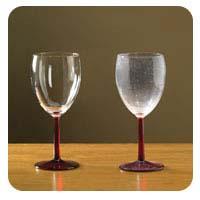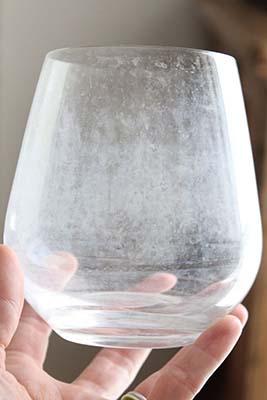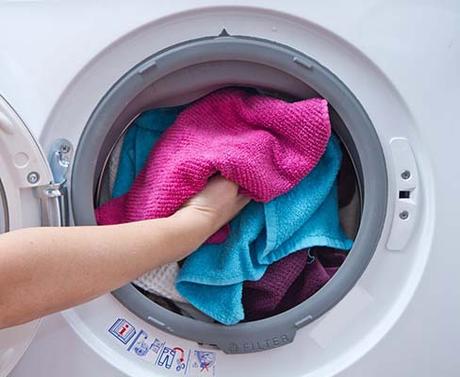
 A glass before and after being affected by hard water
A glass before and after being affected by hard water
On AC, we often discuss the fact that your clothes and your home need to be in tandem and you need to make the best out of it. Sometimes, you can fix more issues at once if you realize what the exact problem is.
One of the most common harmful elements is hard water, which can affect your appliances and plumbing pipes, but it can also affect your clothes. There are many different solutions on the market to the hard water problem, which means you need to educate yourself before buying one.
Hard water is defined as water with very high levels of minerals, in particular calcium, manganese and magnesium.
Having hard water can affect not only your plumbing and clothes, but it can also affect the look and functionality of your bath tub, regardless of whether it’s a regular one or a walk-in bath. One of the best ways to know that you have hard water in your home is to have the water in your home tested by a professional. The following are a few signs to look for to let you know that you have a hard water problem.
White residue everywhere


Dirty clothes
Another noticeable sign that you have a hard water problem in your home is that your clothes are not clean even after washing them. Usually, you will start to notice that your clothes are looking dingy and stained after they dry up, which is caused by the sediment and minerals in the hard water.


Higher hot water bills
One of the most essential parts of many homes around the world is the hot water heater, which allows you to take warm baths and showers. If you have a hard water problem in your home, then your hot water heater will begin to suffer due to the mineral build up that the hard water will cause. This will cause the hot water heater to have work harder to produce and dispense the water you need, which will lead to higher bills. Not having this problem fixed in time can ruin your hot water heater, which means you will have to spend the money to replace it.
When you want to make measures against hard water, you will need to get an online quote from professionals in the area. When looking for technical help, always make sure you check online reviews of what people said about the person or service or get a recommendation from someone you trust on the issue. Otherwise, things could turn out too expensive and worse than they were initially.
There are several things you can do against it, from buying an ion exchange water softener or a magnetic or electronic water conditioners to doing a lime-soda ash treatment, so always make sure you check with a pro on what each technique implies and what the up- and downsides are.
Regardless of whether we’re talking about your clothes or your home, it is important to protect your investments and belongings in the best way you possibly can. Identifying issues and taking the measures to mitigate or completely remove them is crucial: it will help you be more comfortable, as the things around you work and are generally reliable, it will be more sanitary and will help you maintain your health and it will also give you a better mood and attitude about your environment, yourself and the world.
Fraquoh and Franchomme
P.S. Have you identified signs of hard water in your life? What did you do about it? How have things changed since? Share your feedback, questions or thoughts in the comments below! For more articles on style, fashion tips and cultural insights, you can subscribe to Attire Club via e-mail or follow us on Facebook, Twitter or Instagram!

